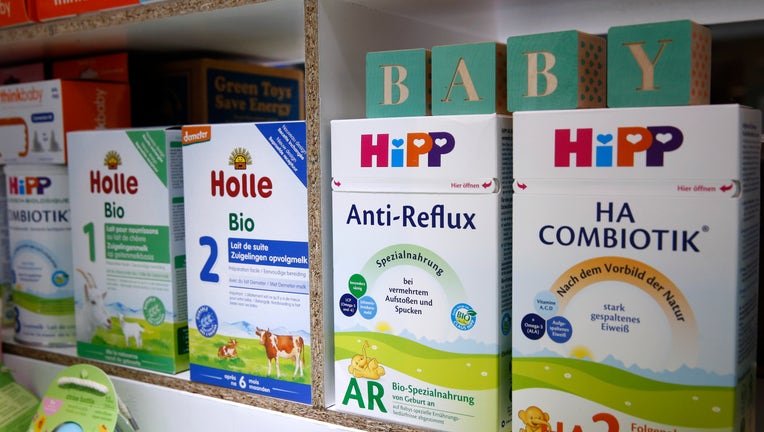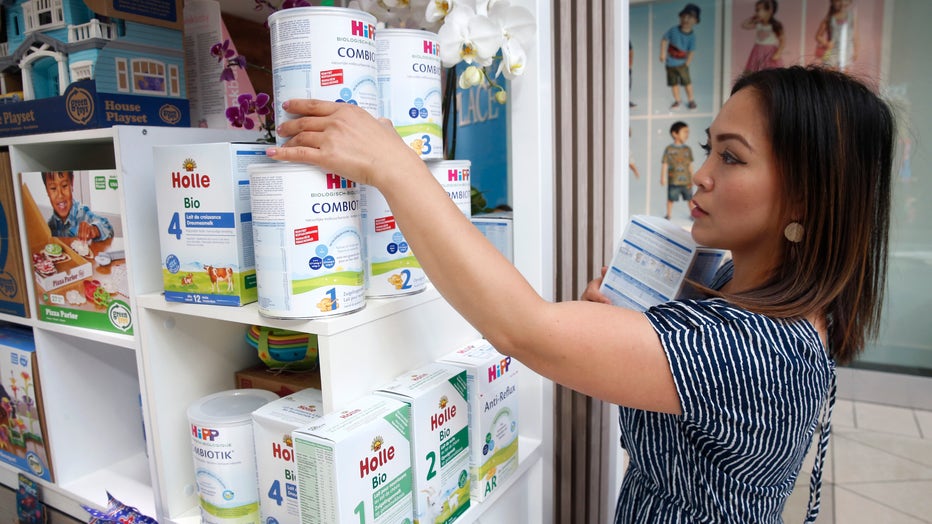Baby formula shortage: US to allow long-term foreign imports to prevent repeat

Baby formula imported from Europe is sold by Nika Manabat at her Joeys on the Go kiosk at Valley Fair Mall in Santa Clara, Calif. on Tuesday, May 7, 2019. (Photo by Paul Chinn/San Francisco Chronicle via Getty Images)
U.S. regulators on Friday unveiled their plan to allow foreign baby formula manufacturers to stay on the market long term, an effort to diversify the nation's tightly concentrated industry and prevent future shortages.
The Food and Drug Administration said recent entrants to the U.S. market will have until October 2025 to make sure their formulas comply with federal standards for nutrition, labeling and manufacturing. The agency noted that some companies should be able to meet those requirements sooner.
The U.S. has been forced to turn to foreign manufacturers to boost formula supplies since February, when FDA inspectors temporarily shuttered the nation’s largest domestic formula factory due to bacterial contamination.
In May, the FDA eased federal import regulations and President Joe Biden authorized the airlift of millions of pounds of powdered formula from overseas. Together those actions have brought the equivalent of 300 million bottles of formula into the country, according to the FDA.
RELATED: Baby formula shortage: FDA concedes delays after whistleblower complaint
"Manufacturers from around the world have demonstrated their commitment to helping bolster U.S. supply and, in turn, we are committed to continuing these flexibilities for their products to safely remain on the market," FDA Commissioner Robert Califf said in a statement.

Nika Manabat restocks shelves with popular baby formula imported from Europe at her Joeys on the Go kiosk at Valley Fair Mall in Santa Clara, Calif. on Tuesday, May 7, 2019. (Photo by Paul Chinn/San Francisco Chronicle via Getty Images)
The policy allowing importation was set to expire in November, but the FDA said it would be extended to January, after which companies can ask to stay on the market longer.
For decades, the U.S. formula industry has been dominated by a handful of companies with domestic production facilities, excluding similar products from Europe, Australia and Latin America. The U.S. system evolved to prioritize safety and low pricing, favoring a few large players.
RELATED: US formula shortage to improve by October, Gerber CEO projects
Foreign formula companies seeking to remain in the U.S. must meet specific thresholds for 30 nutrients and undergo manufacturing inspections by FDA staff, among other steps.
Earlier this month the FDA formally acknowledged several shortcomings in its response to the shortage, including outdated information technology systems and inadequate training among its food facility inspectors.


